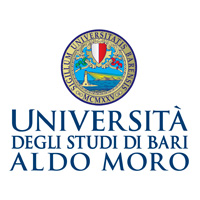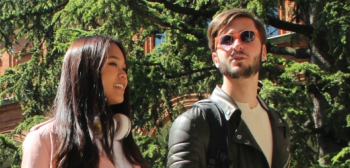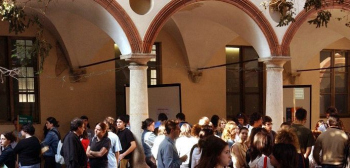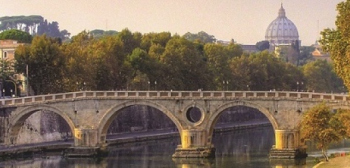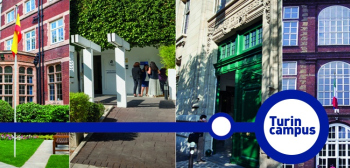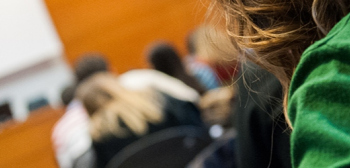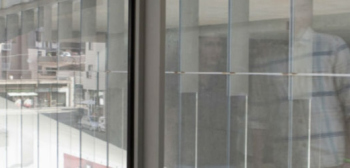- #801-850 QS Global World Ranking
- PublicStatus
- Very HighResearch Output
- 30,202Total Students
- 1,554Faculty
- 777Int'l Students
QS Global World Ranking
The University’s position in the current QS World University Rankings.
The University’s position in the current QS World University Rankings.
Status
Whether the University is funded by the government of that country or state, or funded by private donations.
Whether the University is funded by the government of that country or state, or funded by private donations.
Research Output
The research intensity of the University, based on the number of papers output relative to the University’s size.
The research intensity of the University, based on the number of papers output relative to the University’s size.
Total Students
The number of full time equivalent students enrolled at the University.
The number of full time equivalent students enrolled at the University.
Faculty
The number of full time equivalent teaching staff employed by the University.
The number of full time equivalent teaching staff employed by the University.
Int'l Students
The number of full time equivalent international students enrolled at the University.
The number of full time equivalent international students enrolled at the University.
University of Bari
About
Read more
Read less
The origin of the University of Bari dates back to 1581, when the "Collegio della Compagnia del Gesù" started the University degree in Philosophy and Human Sciences.At the beginning of the 18th Century the new "illuministic ideology" pushed forward the needs in the area of physical and natural sciences: as a consequence, curricula in Medicine, Law, Chimestry, and Botanics were activated in Altamura. In 1772 the Royal College moved the Universiy activitiy from Atamura to Bari, including the very outstanding curricula in Legislation and Agriculture.At the beginning of the 19th Century, New University Schools (Licei) were activated by G. Murat in the Apulia Region. Some of these Schools were closed in 1861/2, after the creation of the Italy Nation , other Schools were moved to Naples. At the same time, in order to continue the University activity, it was taken the decision to build the "Atheneum" in Bari. The construction started on March 14, 1868. The building was ready on December 28, 1889.The University of Bari was instituted in October 9, 1924, on the foundations of the ancient Graduate Schools of Pharmacy and Notaryship activated immediately after the Unification of Italy as substitutes of the former "Reale Liceo delle Puglie".In January 1925 the Faculty of Medicine was set up and included the pre-existing School for Midwives, and the School of Pharmacy was transformed into a Faculty.Successively, other faculties were instituted including the Faculty of Law, the Faculty of Economy and Commerce (stemming from the School of Advanced Studies of Commerce founded in 1882) and Agriculture. Since 1944, the University was extended with the institution of the Faculties of Humanities and Philosophy, Mathematics, Physics and Natural Sciences, Engeneering, Education Sciences, Veterinary Medicine and Foreign Languages.With the four-year Plan 1986/90, the setting up of other University centers in Foggia and Taranto were foreseen. In fact, branches of the Faculties of Law, Economy and Commerce and Agriculture were instituted in Foggia. In particular, a Graduate Course in Food Preparation Sciences was included in the Sillabi of the Foggia Faculty of Agriculture, successively called Science and Alimentary Technology. In addition, in Taranto a Graduate Course on Environmental Sciences with a focus on Marine Environment was instituted as a decentralized branch of the Faculty of Mathematics, Physics and Natural Sciences of Bari.Morever, with the same four-year Plan the Faculty of Architecture was intituted and then transfered jointly at the Faculty of Engeneering into Polite-cnico.Under the reform of the University regulations (n.341/90, and by the virtue of the University Development Program for the three-year period 1991/3, January 31, 1992, the authorization to istitute the following Diploma was granted, Plant Breeding - focus on "Cropping Techniques for Nursery-Grown Fruit and Vegetable (decentralized branch in Foggia); Animal Breeding - focus on "Aquaculture and Mariculture"; Animal Breeding - focus on Mariculture, Fishery and Seafood Processing" (decentralized branch in Taranto); Expert in the field of Cultural Properties; Journalism (decentralized branch in Foggia (not yet operational); Tour operator (not yet operational; Translators and Interpreters (not yet operational); Nursing Science (decentralized Branch in Foggia e Taranto); Economy and Management of Tourist Services (decentralized branch in Foggia); Biology; Pharmaceutical Technologies (decentralized branch in Taranto). In addition, the same three-year Program 1991/3 envisaged the conversion of the Graduate Course of Political Sciences into a full-fledged Faculty (not yet operational) as well as the institution of a Graduate Course of Business Management (decentralized branch in Taranto - not yet operational), and the Graduate Course of Environmental Sciences already operational in Taranto with a focus on Marine Environment. Another item of the above 1991/3 Programma was the institution, starting from January 1rst, 1993, of a Graduate Course of Medecine and Surgery in Foggia stemming from the homologous Faculty of Bari.The University of Bari can also boast an active partecipation in international research project. Indeed, from the point of view of a scientific collaboration many are the agreements of cultural co-operation put into being with both European and American universities as well as with some universities of the People of the Republic of China.The University of Bari is also the headquarters of the Mediterranean Universitiy Community (CUM), founded in 1993 and recognized by UNESCO as a autonomous non governmental body, where converge 158 universities from all over Mediterranean countries.
About
The origin of the University of Bari dates back to 1581, when the "Collegio della Compagnia del Gesù" started the University degree in Philosophy and Human Sciences.At the beginning of the 18th Century the new "illuministic ideology" pushed forward the needs in the area of physical and natural sciences: as a consequence, curricula in Medicine, Law, Chimestry, and Botanics were activated in Altamura. In 1772 the Royal College moved the Universiy activitiy from Atamura to Bari, including the very outstanding curricula in Legislation and Agriculture.At the beginning of the 19th Century, New University Schools (Licei) were activated by G. Murat in the Apulia Region. Some of these Schools were closed in 1861/2, after the creation of the Italy Nation , other Schools were moved to Naples. At the same time, in order to continue the University activity, it was taken the decision to build the "Atheneum" in Bari. The construction started on March 14, 1868. The building was ready on December 28, 1889.The University of Bari was instituted in October 9, 1924, on the foundations of the ancient Graduate Schools of Pharmacy and Notaryship activated immediately after the Unification of Italy as substitutes of the former "Reale Liceo delle Puglie".In January 1925 the Faculty of Medicine was set up and included the pre-existing School for Midwives, and the School of Pharmacy was transformed into a Faculty.Successively, other faculties were instituted including the Faculty of Law, the Faculty of Economy and Commerce (stemming from the School of Advanced Studies of Commerce founded in 1882) and Agriculture. Since 1944, the University was extended with the institution of the Faculties of Humanities and Philosophy, Mathematics, Physics and Natural Sciences, Engeneering, Education Sciences, Veterinary Medicine and Foreign Languages.With the four-year Plan 1986/90, the setting up of other University centers in Foggia and Taranto were foreseen. In fact, branches of the Faculties of Law, Economy and Commerce and Agriculture were instituted in Foggia. In particular, a Graduate Course in Food Preparation Sciences was included in the Sillabi of the Foggia Faculty of Agriculture, successively called Science and Alimentary Technology. In addition, in Taranto a Graduate Course on Environmental Sciences with a focus on Marine Environment was instituted as a decentralized branch of the Faculty of Mathematics, Physics and Natural Sciences of Bari.Morever, with the same four-year Plan the Faculty of Architecture was intituted and then transfered jointly at the Faculty of Engeneering into Polite-cnico.Under the reform of the University regulations (n.341/90, and by the virtue of the University Development Program for the three-year period 1991/3, January 31, 1992, the authorization to istitute the following Diploma was granted, Plant Breeding - focus on "Cropping Techniques for Nursery-Grown Fruit and Vegetable (decentralized branch in Foggia); Animal Breeding - focus on "Aquaculture and Mariculture"; Animal Breeding - focus on Mariculture, Fishery and Seafood Processing" (decentralized branch in Taranto); Expert in the field of Cultural Properties; Journalism (decentralized branch in Foggia (not yet operational); Tour operator (not yet operational; Translators and Interpreters (not yet operational); Nursing Science (decentralized Branch in Foggia e Taranto); Economy and Management of Tourist Services (decentralized branch in Foggia); Biology; Pharmaceutical Technologies (decentralized branch in Taranto). In addition, the same three-year Program 1991/3 envisaged the conversion of the Graduate Course of Political Sciences into a full-fledged Faculty (not yet operational) as well as the institution of a Graduate Course of Business Management (decentralized branch in Taranto - not yet operational), and the Graduate Course of Environmental Sciences already operational in Taranto with a focus on Marine Environment. Another item of the above 1991/3 Programma was the institution, starting from January 1rst, 1993, of a Graduate Course of Medecine and Surgery in Foggia stemming from the homologous Faculty of Bari.The University of Bari can also boast an active partecipation in international research project. Indeed, from the point of view of a scientific collaboration many are the agreements of cultural co-operation put into being with both European and American universities as well as with some universities of the People of the Republic of China.The University of Bari is also the headquarters of the Mediterranean Universitiy Community (CUM), founded in 1993 and recognized by UNESCO as a autonomous non governmental body, where converge 158 universities from all over Mediterranean countries.
University highlights
- 2012#601+
- 2014# 701+
- 2015# 701+
- 2016#701+
- 2017#701+
- 2018#801-1000
- 2019#801-1000
- 2020#801-1000
- 2021#801-1000
- 2022#801-1000
- 2023#801-1000
- 2024#741-750
- 2025#801-850
- 2026#801-850
QS Stars is a rating system that helps you select the right university based on your
interests. It provides a detailed look at an institution, identifying which universities rate highest in
the
specific topics that matter to you, like facilities, graduate employability, social responsibility,
inclusiveness, and more.
Campus locations
Piazza Umberto I,1, Bari, IT,
Piazza Umberto I,1 , Bari , Italy , 70121
Similar Universities
Università IULM
Via Carlo Bo, 1, Milan
John Cabot University
Via della Lungara 233, Rome
ESCP Business School - Torino
Corso Unione Sovietica, Turin
LUMSA University
Borgo Sant'Angelo 13, Rome
Bocconi University
Via Sarfatti 25, Milan
Related content

Global, Italy and US: Educat…
By
QS Staff
Writer
Updated
52
0
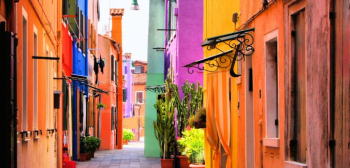
Italy: Ten Things To Do
By
QS Staff
Writer
Updated
119
0

4 reasons to attend a summer…
By
Chloe
Lane
Updated
1.4k
1
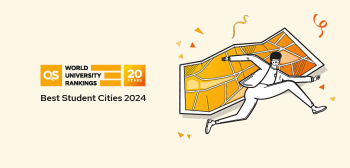
QS Best Student Cities 2024:…
By
Craig
OCallaghan
Updated
1.8k
0
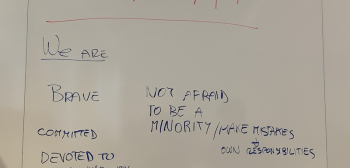
My experience studying a MSc…
By
Craig
OCallaghan
Updated
1.6k
0
Test preparations
Featured University


Sponsored
438
QS World University Rankings
-
10 UG & 47 PGTotal courses
-
Private for ProfitStatus
-
HighResearch output
University of Bari
EN
